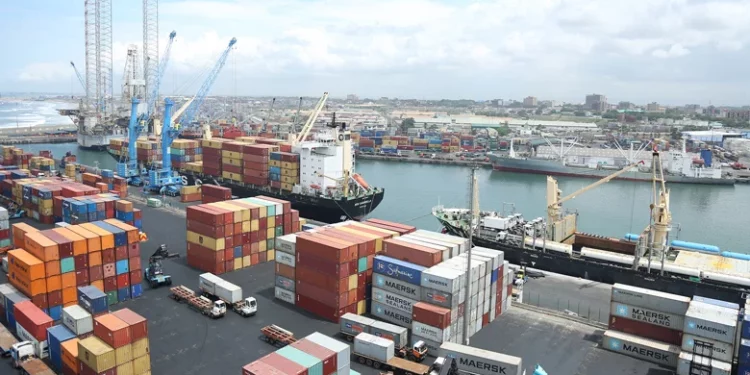Customs responsible for 30-60% of total tax revenue in developing countries – World Bank
According to the World Bank, a well-functioning customs administration can improve revenue collection by implementing effective measures such as automation of customs processes, risk management, and targeted inspections of high-risk goods.
- Advertisement -
In developing countries, customs administrations play a vital role in trade facilitation, revenue collection, and ensuring import security at the borders. These three key roles have the potential to contribute to a stronger fiscal position and increased revenue collection for the government, says the World Bank in a new report.
In its report titled, Customs Reform in Developing Countries – Time to Rethink?, the World Bank notes that, revenue collection is an essential role of customs, especially in low-income countries where customs can collect from 30 to 60 percent of total tax revenues. This makes them a key source of domestic revenue mobilization.
- Advertisement -
According to the World Bank, a well-functioning customs administration can improve revenue collection by implementing effective measures such as automation of customs processes, risk management, and targeted inspections of high-risk goods.
- Advertisement -
Trade facilitation, the World Bank also notes, is another essential role of customs. It involves policy measures aimed at reducing the costs of border-crossing trade outside of traditional market access policy tools such as tariffs. Developing countries often face significant barriers to trade, including cumbersome customs procedures, inefficient border management, and inadequate infrastructure. Customs can help to alleviate these barriers by implementing streamlined processes, harmonized standards, and single-window systems for customs clearance.
Import security is also a critical role of customs in developing countries, the Bretton Wood Institution further states. Customs are responsible for controlling the quality and standards of imports, including health and quarantine controls. They also play a crucial role in combating counterfeits and protecting intellectual property rights. Supply chain security is another area of concern for customs, as modern supply chains can be vulnerable to misuse.
- Advertisement -
The potential for customs to contribute to revenue collection and trade facilitation in developing countries is significant. However, the effectiveness of customs administration in achieving these goals depends on several factors, including political will, adequate resources, and efficient processes. Corruption and lack of transparency can undermine the effectiveness of customs administration, leading to reduced revenue collection and increased costs for businesses.
Moreover, customs must balance the need for revenue collection with the need for facilitating trade. Excessive customs procedures and inspections can increase the cost of trade and reduce its efficiency. The optimal balance between revenue collection and trade facilitation will depend on the specific context of each country.
Customs administration plays a vital role in developing countries, with its three key roles of trade facilitation, revenue collection, and ensuring import security at the borders. These roles have the potential to contribute to a stronger fiscal position and increased revenue collection for the government. However, effective customs administration requires political will, adequate resources, and efficient processes to achieve the optimal balance between revenue collection and trade facilitation.
Source: norvanreports.com
- Advertisement -


